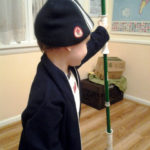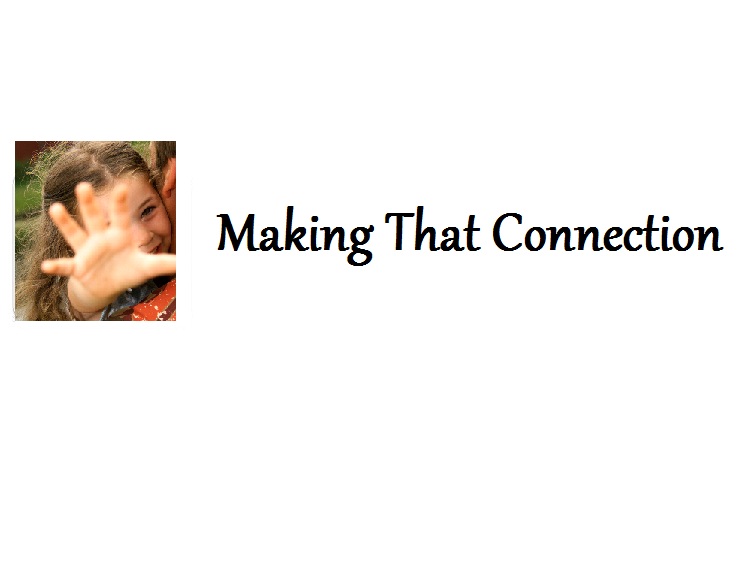 I am sitting here remembering that last night I thought of a good idea to write about but did not have the time. Tonight, I have the time but do not have the idea. My sister suggested talking about how my 3 year old vacuumed the area rug in our living room for 30 minutes (which normally does not get more than a minute or so of TLC time,) and how we should take those mundane tasks that we do and use those times wisely to clean ourselves spiritually and emotionally. I guess that idea will also work with the kitchen and dining room floor that he insisted he mop after an older brother did his share. There was so much opportunity to sit down and cleanse my soul while I waited for the inch of water on the floor to dry. If we would to look around and snag a little time here and there to re-Jew-venate, we would be so much further ahead. Alas, unfortunately I was busy trying to get all the BBB’s (beautiful bouncing boys) into bed!
I am sitting here remembering that last night I thought of a good idea to write about but did not have the time. Tonight, I have the time but do not have the idea. My sister suggested talking about how my 3 year old vacuumed the area rug in our living room for 30 minutes (which normally does not get more than a minute or so of TLC time,) and how we should take those mundane tasks that we do and use those times wisely to clean ourselves spiritually and emotionally. I guess that idea will also work with the kitchen and dining room floor that he insisted he mop after an older brother did his share. There was so much opportunity to sit down and cleanse my soul while I waited for the inch of water on the floor to dry. If we would to look around and snag a little time here and there to re-Jew-venate, we would be so much further ahead. Alas, unfortunately I was busy trying to get all the BBB’s (beautiful bouncing boys) into bed!
The only thing I remember about the wonderful idea last night is that it was all about Emuna (faith/belief). Over the past several weeks it seems to be a recurring theme, at least in my mind, and I know it has not been any coincidence! It is like when you get a new car, all of a sudden everyone has the exact same car, though they were always on the road, it is just that your eyes were closed to seeing them. Only when we get that car do our eyes open. Too often we (or should I say, I?) go through the day and do not think. Life gets busy – teaching, coordinating children with schoolwork on computers, supper, nap time, house cleaning, etc. and before you know it, the day is done. What happened to it? Life can get meaningless and one can start to wonder “why”? When my children grow up and move out of the house, it will be harder to help them with these obstacles. We all want our children to not only remain faithful to the Torah and its teachings, but to WANT to remain faithful. I know that I want to remain, but will my children? Now is the time to ingrain within them the answers before the questions arise. The million dollar question – How? How can I instill in my children a connection with Hashem that is strong enough to remain?
I am not sure I have all the answers, but I lately I have sure gotten a lot closer. I have been trying to open up my children’s eyes by asking them what they are thankful for. I enjoy listening to their answers. Unfortunately I often forget, or should I say the day goes by and I remember too late to ask, but when I do it is nice to just listen. This is one time I always smile and say, “Ok!” and never try to change or “correct” an answer. After all, there is no right or wrong answer, and how can it be their answer if I butt in? A few times I have asked, “Did you mean this, or that?” just to clarify in my mind, but never to change their answer. Every time they have to think, it helps create a slightly stronger bond with their Creator.
Our community was given the honor of having Rabbi Lazer Brody come and speak last week. Rabbi Brody translated Rabbi Arush’s book, “Garden of Emuna”, among many other of Rabbi Arush’s works. There was one thing he said that struck me. Happiness. Judaism IS happiness. If you are not happy then something is wrong. Judaism is not wrong, Hashem is not wrong, there is something with you that needs to be fixed. Of course! It was like a light bulb turned on in my head. How many times have we heard of people who have gone astray because of all the arguing about minhagim (customs) or the strictness (with lack of happiness and love) in doing mitzvos? Someone who grows up (or just sees) fighting about who is right and who is wrong, or feeling that we do the mitzvos because we have to and we better-do-it-right-or-else attitude, why should they remain? There is a mitzvah in the Torah to be happy. If we are happy to do a mitzvah or happy that we have Hashem, then we want to continue. Yes, this is something that I knew, but it never dawned on me that this was the answer or was at least a huge part of the answer I was looking for for my children. The next step is knowing how to be happy. That answer is Emuna. If we have emuna in Hashem in all that He does, we will be happy. If not, we just need to have more emuna. (Now is the time for me to say that to help with emuna read, “The Garden of Emuna”!)
I need to ingrain into my children that Judaism is suppose to be happy and if one is not happy, they need to become happy, it is not Judaism that needs to be changed, chas v’shalom. Also, I need to give them the tools needed to create emuna so that when tough times do happen, and yes they occasionally will, they will know with their heart that it is them that needs to change and they will have the knowledge and ability how to make that happen.
We can try the best we can and we should, but like the concept we are trying to teach our children, we have to practice what we preach. We have to have emuna and daven ourselves that Hashem will help us all out in succeeding in this area. We have to work on ourselves. Not only will our children learn for it’s “Monkey See Monkey Do,” there is an added bonus that we ourselves will be more happy as well and what child does not want a happy parent!
With that said, tonight I am thankful that my rug is clean, my kitchen floor is now clean (and dry!) and the boys like coming to stores with me still. 🙂 What are you thankful for?


A few months ago, at the completion of a long car ride, the boys were bitterly complaining how nothing good happens to them (after getting a nice out-of-town trip and treats and picking out the music to listen to, etc). I got fed up and the next morning presented “Hakarat HaTov” chart. Basically, every family member had to add one nice thing that happened to him in the previous two hours. We filled it up for the day, and it was a much calmer day. I still have it hanging up, as a reminder to myself of all the small things to be grateful for.
Thank you for sharing your idea Ilana!